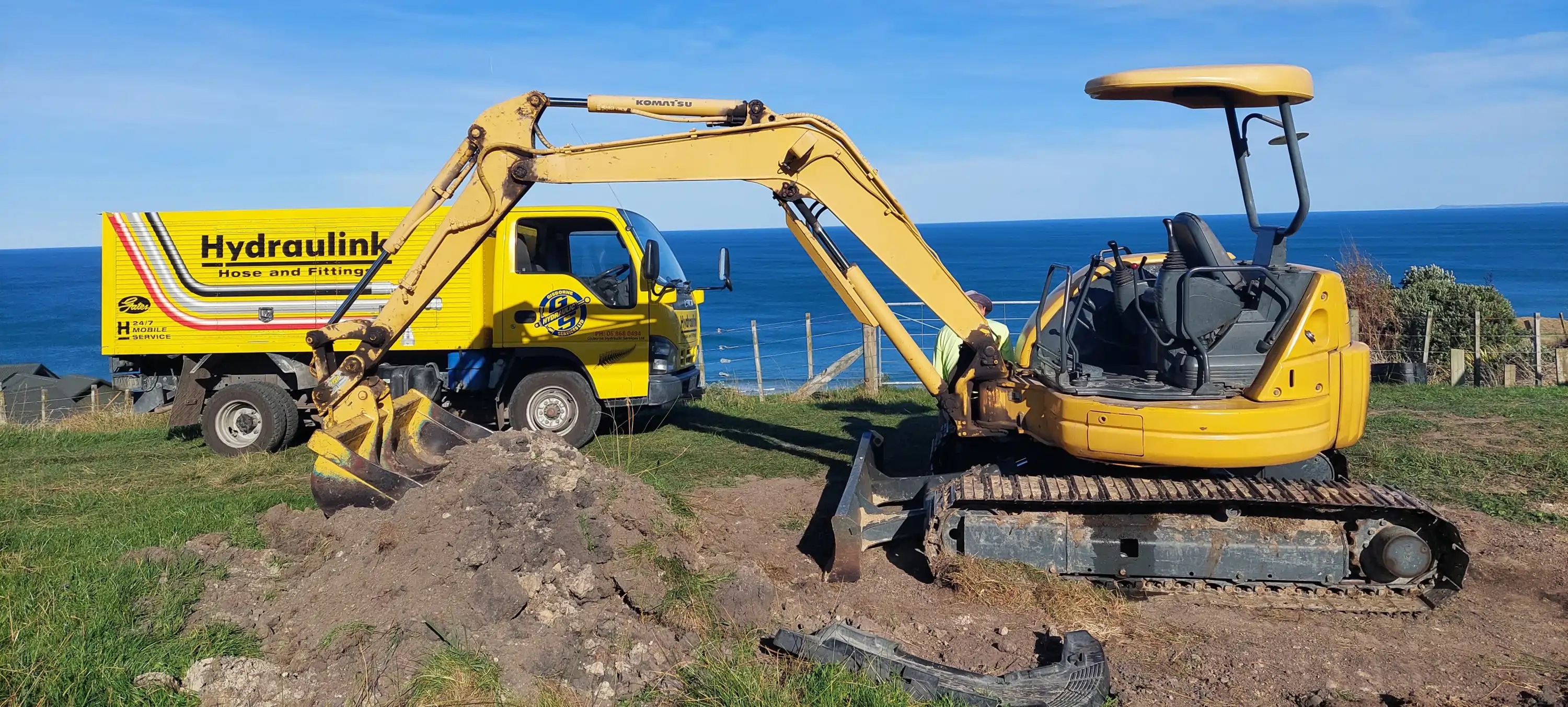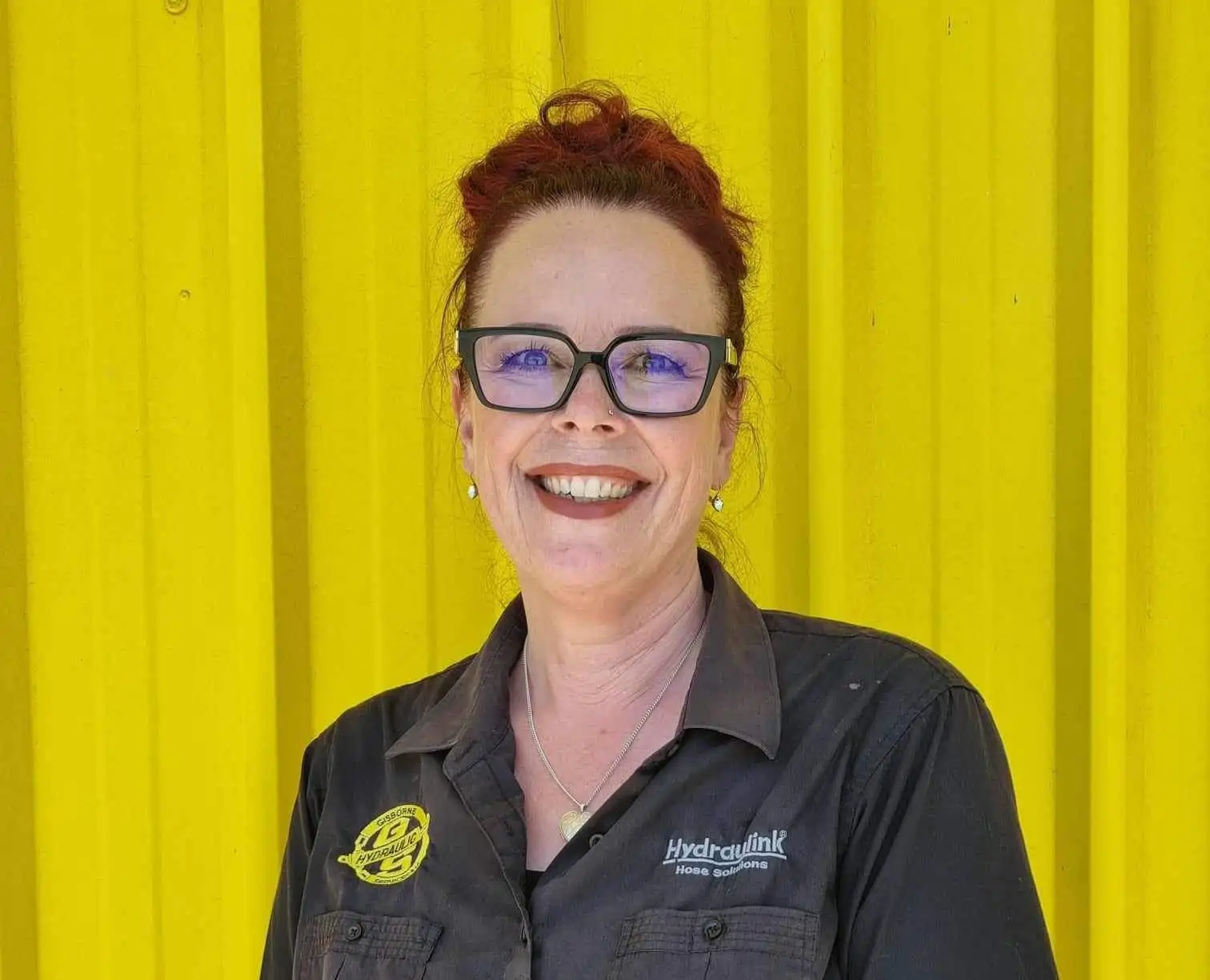Industry benefits with New Zealand’s first
Fluid Power Engineering Certification

Mohammed Farook, left, has become the first person in New Zealand to undertake the brand new Certificate in Fluid Power Engineering Fundamentals (Level 3). Introduction of the new certification was championed by the New Zealand Fluid Power Association, led by chairperson, Tasj Paulson, pictured centre, who is also Owner and Director of Gisborne Hydraulics. The programme is being run by Apprentice Training New Zealand, led by National Manager Ben Julian, pictured right
For the first time in history, New Zealand has a dedicated certification for fluid power engineering, providing new training and career path options to those in the hydraulics and pneumatics industries.
The Certificate in Fluid Power Engineering Fundamentals (Level 3) approved by the New Zealand Qualifications Authority (NZQA) is the result of sustained effort by several key people in the industry and of a newly formed New Zealand Fluid Power Association.
The treasurer & former chairperson of this association is Natasja (Tasj) Paulson, Owner and Director of Gisborne Hydraulics and Hydraulink distributor. Gisborne Hydraulics specialises purely in fluid power, which includes oil and compressed air. The company services machinery for a broad range of industries, including agriculture, horticulture, roading, earthmoving, marine, aviation support vehicles, viticulture, process factories, and more.

Gisborne Hydraulics provides emergency breakdown services to a broad range of industries that utilise hydraulic-powered machinery.
“After more than 20 years with Gisborne Hydraulics, I took over as owner in 2017 and found that it was difficult to attract the right staff because there was no formally recognised fluid power training,” explains Tasj.
Fluid Power Engineering Certification takes off
Tasj and a number of like-minded people from the Fluid Power Industry worked alongside the Workplace Development Council to develop a certification that was “for the industry by the industry.”
By the end of 2022, NZQA had officially accepted the certification, and much of 2023 was spent developing the technical elements of what the new course would look like.
Apprentice Training New Zealand took the lead in running the new certification programme. By the end of 2023, everything came together, and the new certification programme was ready for 2024.
“It was an exciting time and the result of the hard work of so many individuals. Naturally, I wanted Gisborne Hydraulics to be the first to participate in the programme, and two of our employees, Mohammed Farook (pictured) and workshop manager Blake Thornton eagerly signed up right away,” said Tasj

Gisborne Hydraulics Owner and Director, Tasj Paulson
Tasj and a number of like-minded people from the Fluid Power Industry worked alongside the Workplace Development Council to develop a certification that was “for the industry by the industry.”
By the end of 2022, NZQA had officially accepted the certification, and much of 2023 was spent developing the technical elements of what the new course would look like.
Apprentice Training New Zealand took the lead in running the new certification programme. By the end of 2023, everything came together, and the new certification programme was ready for 2024.
“It was an exciting time and the result of the hard work of so many individuals. Naturally, I wanted Gisborne Hydraulics to be the first to participate in the programme, and two of our employees, Mohammed Farook (pictured) and workshop manager Blake Thornton eagerly signed up right away,” said Tasj.
Next steps
The New Zealand Certificate in Fluid Power Engineering Fundamentals (Level 3) is now available and provides the fundamentals of fluid power and helps participants secure good jobs and build their careers.
“The next steps are to consider adding a Level 4 and possibly a Level 5 qualification to further upskill people that want to take their qualifications to the next level,” explains Tasj.
